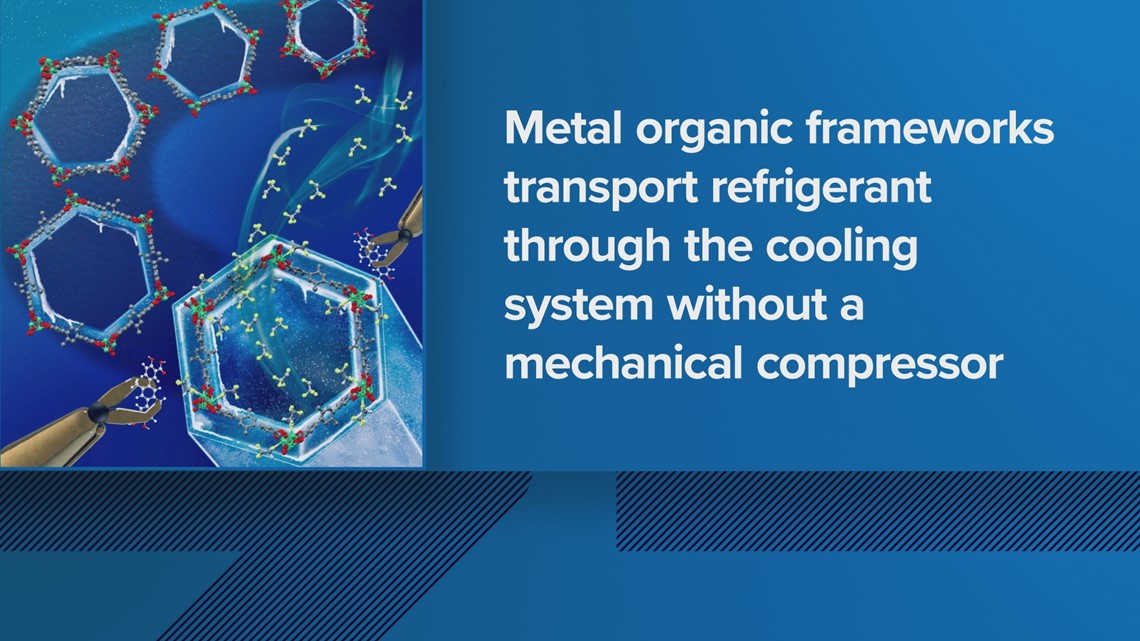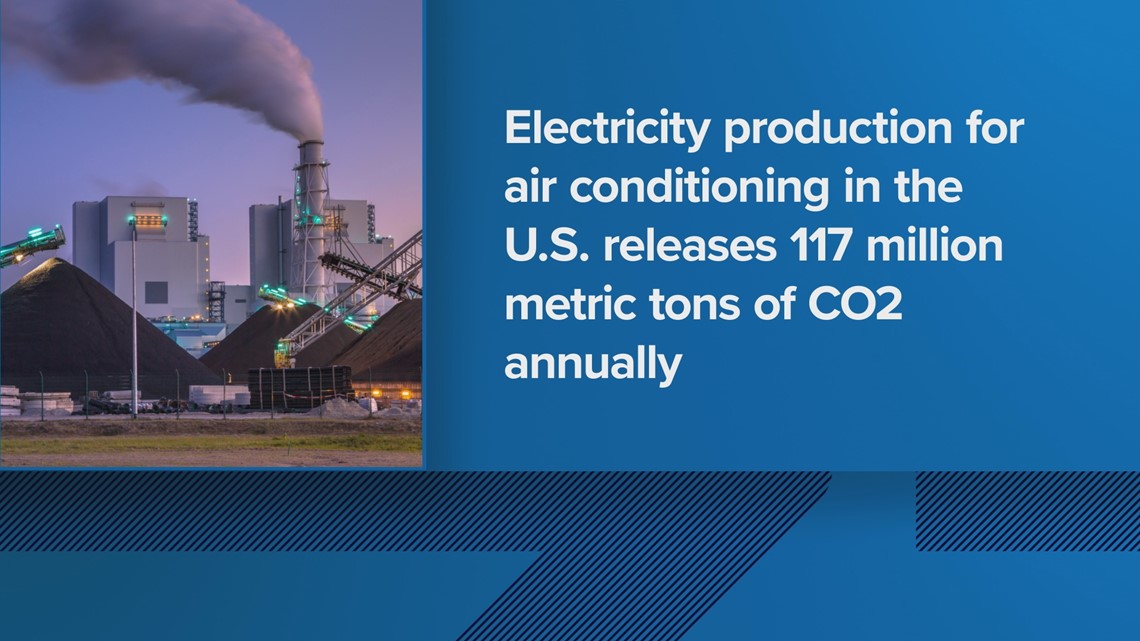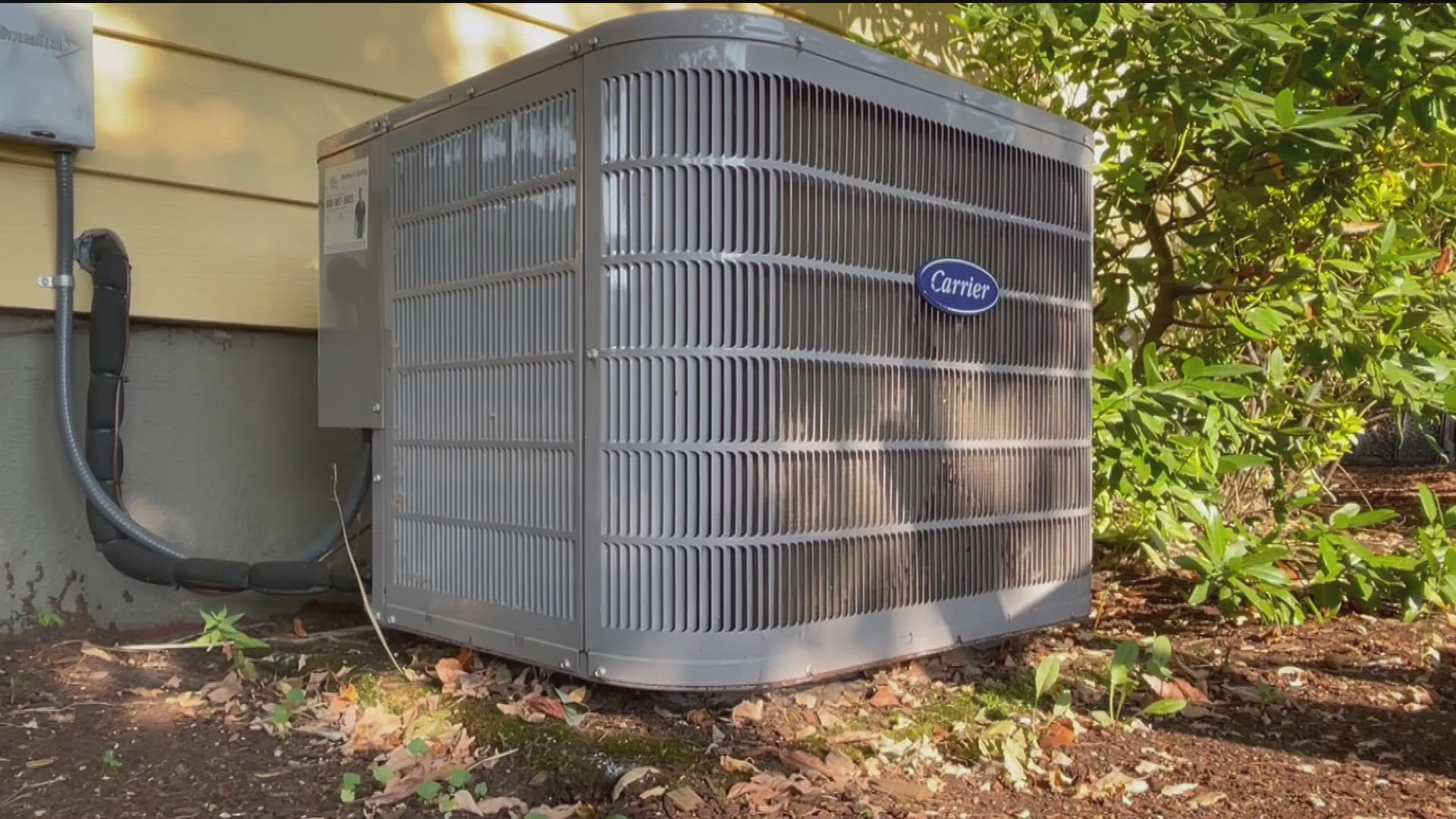PORTLAND, Ore. — Air conditioning alone consumes 6% of the total electricity produced in the U.S. annually. The Department of Energy (DOE) said that costs Americans $29 billion a year just to stay cool.
The Pacific Northwest National Laboratory (PNNL) in Richland, Washington wants to lower that cost by changing just one part of how cooling systems work: the compressor.
It's the noisiest and the most expensive part of home air conditioning, consuming about 85% of the electricity used to run the system. Switching to a chemical process called "sorbent cooling" can revolutionize home air conditioners.
"We've been working on this technology since about 2010," said Dr. Radha Motkuri, a chemist at PNNL. "The sorbents are called Metal Organic Frameworks (MOFs) which are just metals in organic structure. It’s like a hundred floor building, a thousand floor building at nano-level in a small spec.”
These tiny engineered structures are like sponges that pull refrigerant through the cooling system and the flow is self-sustaining; no pump is needed.
OTHER STORIES: Yes, it's getting warmer in Portland, and here's the data


Essentially, the other mechanical parts in the new air conditioner would be the same, but the compression process is driven by "simple industrial waste heat, or solar or thermal; any heat can be used for the absorption/desorption process," said Motkuri.
PNNL scientists have proven this works in the lab and say it's now up to the industry to scale it up to study the cost efficacy.
"It’s a new methodology, it’s more eco-friendly, longevity, self-sustaining and [at] very low cost," said Motkuri.
Portland just endured its third hottest summer on record at PDX. August 2022 was the hottest month ever recorded at PDX, with an average temperature of 75.1 degrees.


Americans are adding about 117 million metric tons of the greenhouse gas, CO2, to create the energy needed to run to air conditioners. A way to save energy and stay cool is something we all want.
Chris McGinness is a meteorologist and reporter for KGW. Got a story idea or a great photo you want to share? Email him at cmcginness@kgw.com or reach out on Facebook , Twitter and Instagram
WATCH: Climate change playlist

